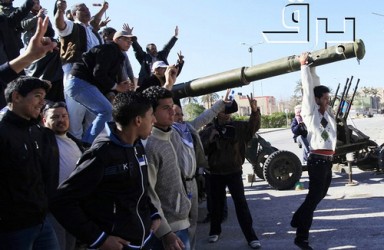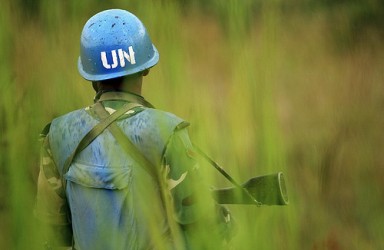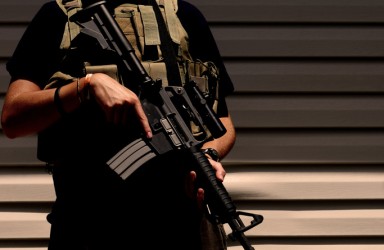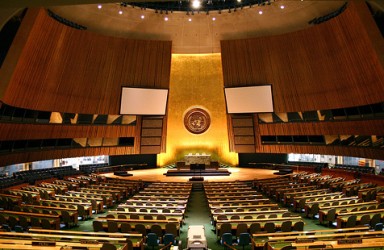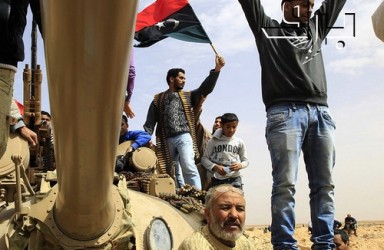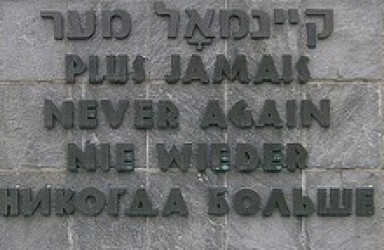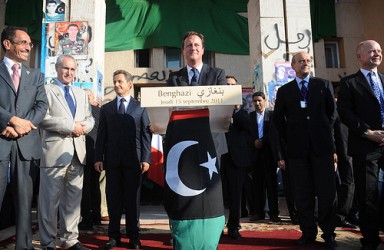R2P, Libya and International Politics as the Struggle for Competing Normative Architectures
The UN was neither designed nor expected to be a pacifist organisation. Its origins lie in the anti-Nazi wartime military alliance amongst Britain, the United States and the Soviet Union. The all-powerful UN Security Council is the world’s duly, and only, sworn in sheriff for enforcing international law and order.
The Illusion of Progress: Libya and the Future of R2P
The problem with R2P is precisely that which rendered “Never Again!” and the Genocide Convention impotent, namely that its enforcement is conditional on the support of the permanent five members of the Security Council. Only the very naive imagine that the P5 honour Article 24.1 of the Charter and act on behalf of UN member states; each state’s respective national interest determines their position.
Outsourcing the War on Terror? The Use of Private Military and Security Companies after 9/11
In the wake of 9/11, private actors have played an increasingly crucial role at both sides of the conflict. Not only is the war on terror a response to the unprecedented threat posed by non-state actors such as terrorist networks; it is also a conflict characterized by a growing role of commercial actors supporting bureaucracies and military organizations.
The Responsibility to Protect and the Problem of Regime Change
Because of the deep concern on the part of many UN member states that RtoP could give rise to a regime change agenda and the equally deep global opposition to such an agenda, it is incumbent on us to explore the relationship more deeply in order to ascertain whether there are ways of maintaining a clear distinction between RtoP and regime change without sacrificing the protection of civilians.
Putin Returns
Putin will remain in power until 2024, barring assassination or revolution, and will become Russia’s longest ruling leader since Stalin. He is not known for his willingness to compromise or surrender Russia’s imperial gains, suggesting that a new time of troubles is looming on the horizon. This will indicate whether the West still sees Russia as a political part of Europe or has concluded that the country cannot be changed and the days of democratization have become a historical footnote.
How to Lose a Revolution
Some are calling the coalition intervention that began 19 March 2011, in Libya a success. I call tens of thousands of deaths and injuries a tragedy. When such casualties occur owing to a military intervention never shown to be necessary, the intervention is a failure.
R2P: Seeking Perfection in an Imperfect World
While the development of R2P as a concept has been the preserve of international relations theoreticians (albeit ones with large amounts of practical experience), its implementation rests on the practitioners of the day. And these practitioners deal in the world of realpolitik with all of its inconsistencies, relativities and competing national interests.
Prevention: Core to the Responsibility to Protect
Motivated both by analytical rigor and political expediency, ICISS sandwiched its discussion of international response to atrocities between what it described as a “responsibility to prevent” and a “responsibility to rebuild.” Once introduced, however, the logic of prevention as core to the global atrocity agenda was difficult to deny. Why wait to halt a massacre if early engagement might avert it entirely?
Intervention in the Internal Affairs of States
The moral imperative to intervene in a nation’s internal affairs where acts of genocide are threatened is a powerful one. That the UN is eager to push the doctrine of R2P and to re-define sovereignty to permit intervention in a state’s internal affairs is testimony to the fact that the Charter does not provide that legal authority. It should.
Was the International Intervention in Libya a Success?
The UN-mandated intervention in Libya is now officially at an end. Perhaps only time will tell whether Libya turns out to have been a great case of international intervention or something rather less.
